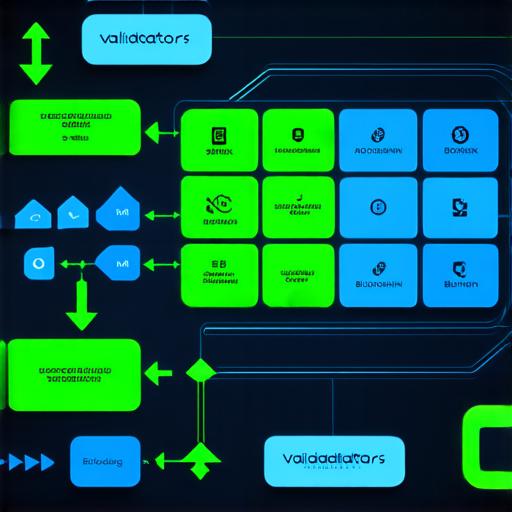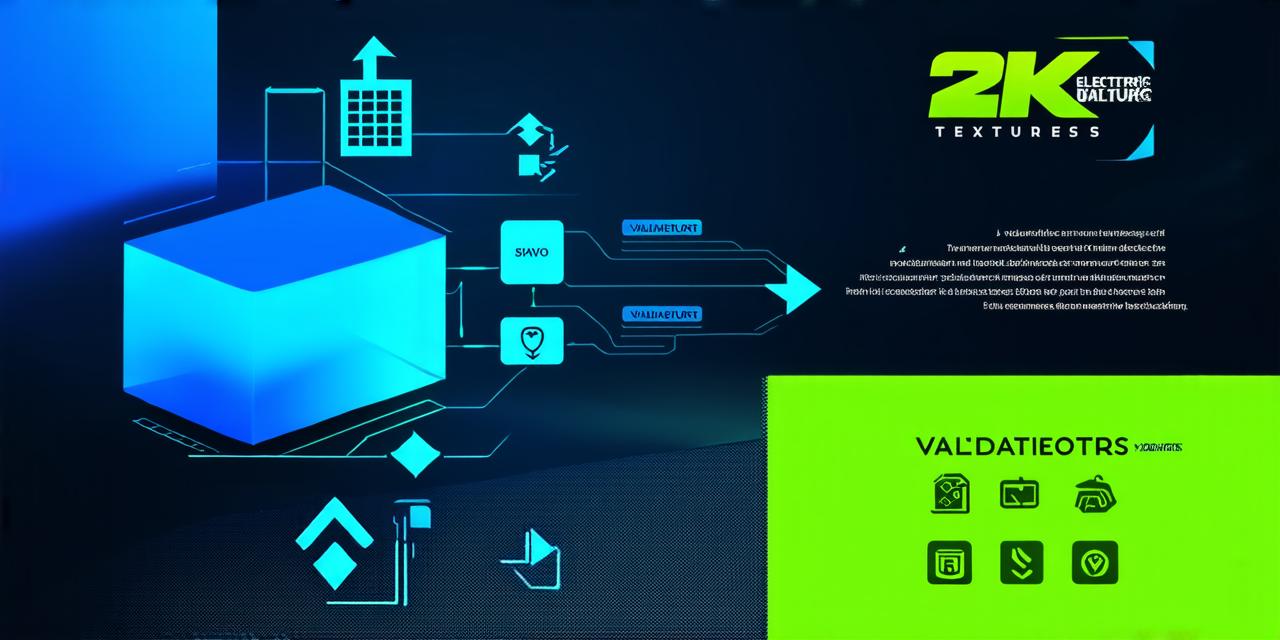Blockchain technology is revolutionizing the way we store and transfer data. It provides a decentralized, secure, and transparent system for recording transactions, making it an ideal solution for industries such as finance, supply chain management, and healthcare.
What are Validators in Blockchain?
Validators, also known as nodes or miners, are computer systems that participate in a blockchain network by verifying and recording transactions on the network ledger. They use sophisticated algorithms to solve complex mathematical problems, which allows them to validate new blocks of data and add them to the existing blockchain. Validators are essentially the gatekeepers of the blockchain, ensuring that only valid transactions are recorded and that the integrity of the network is maintained.
Roles and Responsibilities of Validators in Blockchain
Validators perform several critical tasks in a blockchain network. These include:
- Verifying Transactions: Validators use complex mathematical algorithms to verify that the transactions being recorded on the network are valid. They check to ensure that the sender has sufficient funds, that the transaction is within the rules of the network, and that it does not conflict with any other transactions. If a transaction is deemed invalid, the validator will reject it, and the transaction will not be recorded on the blockchain.
- Maintaining the Ledger: Validators are responsible for maintaining the integrity of the blockchain ledger. They do this by storing copies of the entire blockchain on their computer systems and synchronizing them with other validators in the network. This process ensures that there is a single, accurate record of all transactions on the network.
- Mining New Blocks: Validators are also responsible for mining new blocks of data to be added to the blockchain. This involves solving complex mathematical problems, which requires significant computational power. Once a validator solves the problem, they add the new block to the existing blockchain, and their system is rewarded with new cryptocurrency coins.
- Distributing Rewards: Validators also distribute rewards to other participants in the network. For example, if a user successfully validates a transaction, they receive a reward in the form of cryptocurrency coins.
Why are Validators Essential to the Proper Functioning of Blockchain Networks?
Validators are essential to the proper functioning of blockchain networks because they ensure that the data recorded on the network is accurate and trustworthy. Without validators, it would be impossible to verify transactions or maintain the integrity of the blockchain ledger. Additionally, validators help to secure the network by making it difficult for malicious actors to manipulate or alter the data stored on the blockchain.
Real-Life Examples of Validator in Blockchain Networks
There are many examples of validators in blockchain networks, but some of the most well-known include:
- Bitcoin Miners: Bitcoin miners are validators that verify and record transactions on the Bitcoin network. They use sophisticated algorithms to solve complex mathematical problems, which allows them to validate new blocks of data and add them to the existing blockchain. In return for their efforts, they receive new bitcoin coins as a reward.
- Ethereum Miners: Ethereum miners are validators that verify and record transactions on the Ethereum network. They use sophisticated algorithms to solve complex mathematical problems, which allows them to validate new blocks of data and add them to the existing blockchain. In return for their efforts, they receive new ethereum coins as a reward.
- Validators in Supply Chain Management: Validators are also used in supply chain management to ensure that products are authentic and have not been tampered with. For example, Nestle uses a blockchain-based system called the Food Trust to track the origin and journey of its food products from farm to table. The system relies on validators to verify that each step in the supply chain process is accurate and trustworthy.
FAQs

1. What happens if a validator makes an error?
If a validator makes an error, it can cause issues with the integrity of the blockchain ledger. Other validators will notice the error and reject the transaction, which will prevent it from being recorded on the network. The validator that made the error may also be penalized in some cases.
1. How do validators ensure the security of the blockchain?
Validators ensure the security of the blockchain by making it difficult for malicious actors to manipulate or alter the data stored on the blockchain. They use sophisticated algorithms to solve complex mathematical problems, which requires significant computational power. This makes it much more difficult for any single entity to control or manipulate the network.
1. What is a 51% attack?
A 51% attack occurs when a group of validators controls more than 50% of the computing power used by the blockchain network. This gives them the ability to manipulate the network by rejecting transactions or double-spending cryptocurrency coins. It is considered a serious security risk and can compromise the integrity of the blockchain.
Conclusion
Validators are essential to the proper functioning of blockchain networks because they ensure that the data recorded on the network is accurate and trustworthy. They use complex mathematical algorithms to verify transactions, maintain the ledger, mine new blocks, and distribute rewards. Validators also help to secure the network by making it difficult for malicious actors to manipulate or alter the data stored on the blockchain. As blockchain technology continues to evolve, validators will play an increasingly important role in ensuring that the networks remain secure and transparent.
